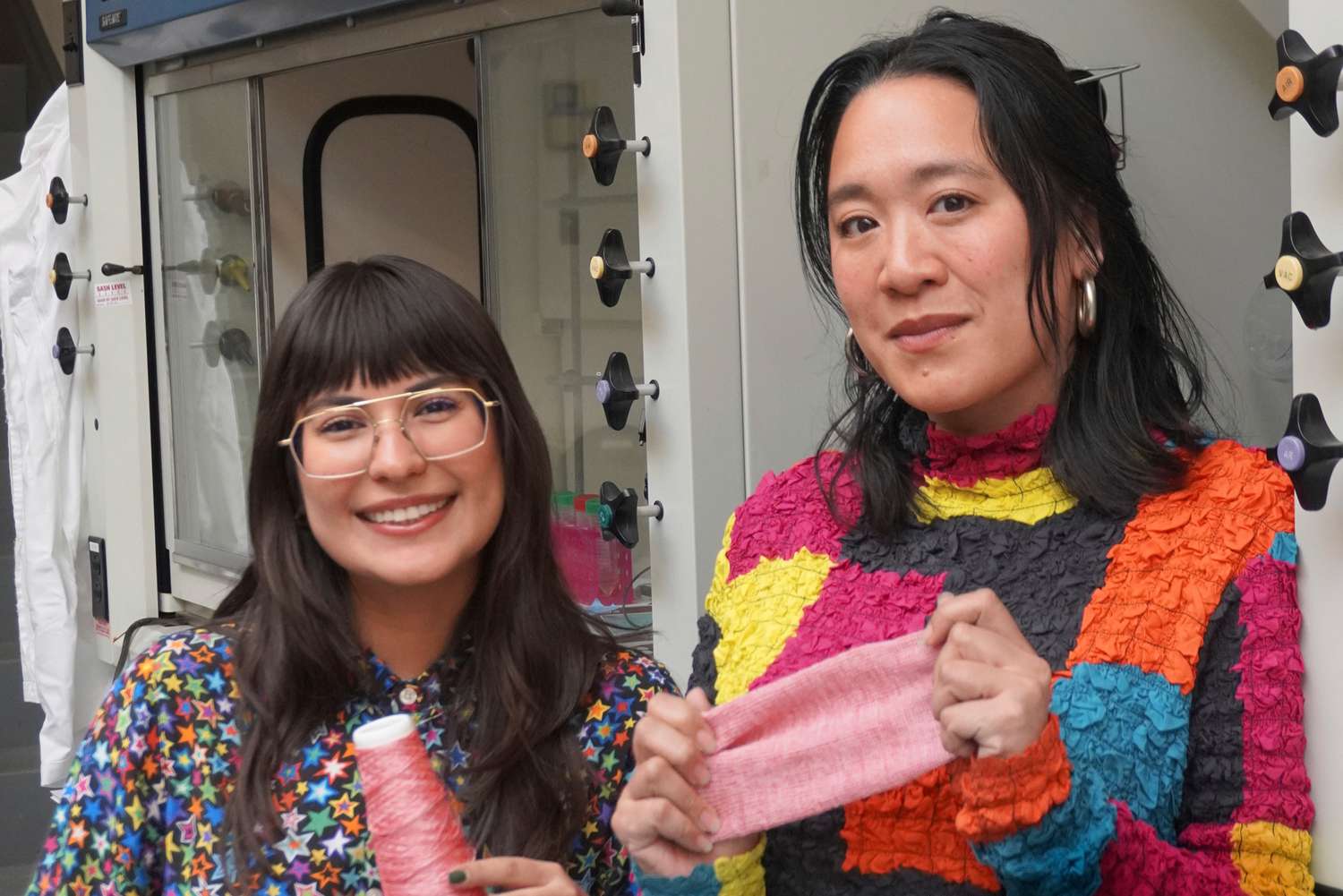When Chui-Lian Lee and Valentina Gomez embarked on their academic journeys as textile developing and marketing majors at the Fashion Institute of Technology, they were eager to learn more about the clothing industry. Some of the things they ended up learning shocked them.
“My family had a denim business while I was growing up, so initially when I went to college, I wanted to work in denim,” Gomez, 26, tells PEOPLE. “And when I got to college, I learned how horrible denim actually is for the environment and quickly decided that I didn’t want to do that.”
Through their studies, Lee, 35, and Gomez found out that denim is only part of problem — roughly 11 million tons of textile waste end up in landfills each year, and the chemicals and gases that emerge during decomposition pollute the earth.
“Every single class that we joined, we’d go through the impacts and it’d be like, ‘Okay, cotton has this large of a water footprint and people are transitioning over to organic cotton, but that’s not really a solution because of these reasons,’ ” Lee explains. “Or, ‘People are looking at recycled polyester, but that’s not great because it still sheds microplastics.’ ”
As every “solution” they learned about “came with caveats,” she adds that they both wound up feeling “really frustrated.”
Christian Joseph
It wasn’t until the duo joined a class on the application of biotechnology to the manufacturing of clothing that they realized there could be a more environmentally friendly option for the fashion industry.
For more on our Earth Day Special, pick up the latest issue of PEOPLE, on newsstands Friday, or subscribe here.
After Lee and Gomez learned that they could use specially engineered proteins to create a fluorescent-color fiber that avoids plastics and dyes and degrades naturally, the idea for Werewool was born. “By changing how we are creating the fibers that make up our clothing, we can change the entire life cycle of our clothing and their end-of-life impacts on the environment, avoiding pollution from plastics,” Lee explains.
The early-stage biotech company focused on developing biodegradable fibers for the textile industry initially started as a “research project” that involved many sleepless nights in the lab. “We just saw so much potential in what we could do with it, and it was like a research project,” Lee says, as Gomez adds, “We saw this as a pathway of something that we could create differently.”
After winning the H&M Global Change Award in 2020, the project “launched” into a company. “That was a turning point for us,” Gomez says.
Over four years and 4.5 million dollars in funding later, Werewool now has 12 employees and has begun working with brands to develop clothing out of their protein-based fibers, with the hopes of launching products in 2025.
“We hope to produce 125,000 tons of fiber by 2030, which is about 390 million shirts,” says Lee. “Our goal has always been to make the fashion industry compatible with nature.”

